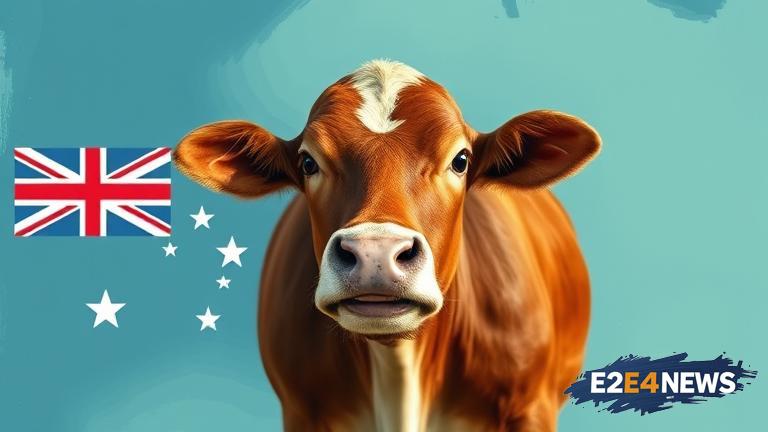In a significant breakthrough, Australian researchers have created a biodegradable vaccine for Foot-and-Mouth Disease (FMD), a highly contagious and devastating viral disease affecting livestock worldwide. This innovative vaccine has the potential to revolutionize the way FMD is controlled and prevented, providing a safer and more environmentally friendly alternative to traditional vaccines. The new vaccine is composed of a biodegradable material that can easily decompose, reducing the risk of environmental pollution and promoting sustainability. According to the research team, the biodegradable vaccine has shown promising results in laboratory trials, demonstrating its efficacy in protecting animals against FMD. The vaccine’s unique composition allows it to degrade naturally, eliminating the need for costly and labor-intensive disposal procedures. This development is expected to have a significant impact on the global livestock industry, which has long struggled with the challenges of FMD outbreaks. The disease is estimated to affect over 100 countries, resulting in substantial economic losses and animal suffering. The Australian government has welcomed the breakthrough, recognizing its potential to enhance the country’s reputation as a leader in agricultural innovation. The research team is now working towards conducting field trials to further test the vaccine’s effectiveness in real-world settings. If successful, the biodegradable FMD vaccine could become a game-changer for animal health, enabling farmers and veterinarians to better protect their livestock and prevent the spread of the disease. The vaccine’s biodegradable nature also addresses concerns regarding the environmental impact of traditional vaccines, which can contribute to pollution and waste. As the world grapples with the challenges of climate change and sustainability, this innovative vaccine offers a timely solution that aligns with global efforts to reduce waste and promote eco-friendly practices. The development of the biodegradable FMD vaccine is a testament to Australia’s commitment to advancing agricultural research and development, with the country investing heavily in initiatives aimed at improving animal health and productivity. The breakthrough is also expected to have significant implications for global food security, as FMD outbreaks can have devastating effects on livestock populations and food production. By providing a safe and effective means of controlling the disease, the biodegradable vaccine can help to ensure a more stable and secure food supply. Furthermore, the vaccine’s potential to reduce the economic burden of FMD outbreaks on farmers and communities cannot be overstated. The disease is estimated to cost the global economy billions of dollars each year, making the development of an effective and sustainable vaccine a major priority. As news of the breakthrough spreads, the international community is likely to take notice, with many countries expected to express interest in collaborating with Australian researchers to advance the development of the biodegradable FMD vaccine. The vaccine’s potential to improve animal health and productivity, while also promoting sustainability and reducing environmental pollution, makes it an attractive solution for governments and industries seeking to address the challenges of FMD. In conclusion, the development of a biodegradable vaccine for Foot-and-Mouth Disease represents a major milestone in the fight against this devastating disease, offering a safer, more effective, and more sustainable means of protecting livestock and promoting global animal health.
